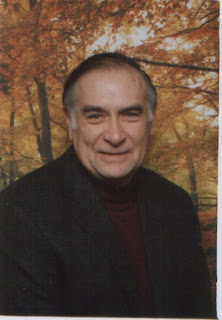
Are there writers for whom a blank page (or, perhaps, a blank computer screen) is an invitation? For me, every unwritten column/blog/letter/song/book/sermon is a door, bolted and double-bolted shut. Every word must be sneaked in undercover, crammed through the mail slot, jammed past the hinges, forced through the peep hole. It takes time, effort, and subterfuge to coerce a piece of writing into being. It makes me tired and grumpy. I don't care for it.
So why write? Why search for the words? Once, in a songwriting session with my friend, Brad Crisler (who is brilliant, successful and unbelievably fidgety and exasperated in writing sessions) I finally asked him, "Do you even
like writing songs?" He replied, "Of course not. But I love having
written a song." Ah, there's the rub. Being an author is fun. Authoring is brutal.
It isn't just the fun, of course, that makes us put up with the whole ordeal. We write (some of us haltingly, some of us prolifically) because, deep inside ourselves where we keep wordless things, we understand that words matter. We are compelled to speak them and write them. We cajole words into submission and then realize that they have told us things we didn't know we knew.
I was thinking about all this tonight (in leu of actually writing anything, of course) when I came across an old journal entry regarding words. Here it is ...
WORDSI was a relatively healthy child. I was particularly resistant to developing a fever, and it always seemed rather unjust to me that each of my brothers possessed the ability to run a mild temperature--even if his only affliction was a case of Unfinished Homework. What my fevers lacked in quantity, however, they more than compensated for in quality.
I had three great fevers--one due to the aptly named Scarlet Fever, another courtesy of the Chicken Pox, and the third in honor of a highly allergic reaction to the unfortunate ingestion of a particular strain of wild berry. In each case my temperature rose to approximately 104 degrees and the ensuing delirium produced vivid and terrifying hallucinations. My mother would rush to my side armed with nothing but cool washcloths and Baby Aspirin--a comfort to be sure, but no match for my imaginary foes. I tried my best to articulate the horrors of the visions before me. "The words are attacking me!"
It isn't hard for me to picture now what I experienced then, and, to be honest, it still gives me the shivers. A word--most often the word "dim" (I am not making this up)--would start off small and sinister on my mind's horizon. Gradually, it would advance towards me, becoming larger each time it asserted itself. This visual march was accompanied by narration--a male voice speaking the word, starting as a whisper ("dim, dim") and becoming louder and louder and LOUDER ("DIM, DIM!!!!"). Literally, the word was attacking me.
I have a writer friend who thinks--charitably--that these childhood experiences prove I was destined to write. My psychologist friend, on the other hand, takes them as clear indications that I am in need of her services. My own diagnosis: too much Sesame Street. But I would like to believe that--at the very least--the nature of my delirium indicated that some part of my young soul understood a little of the power of words.
Words. They don't seem like much, and they fail us often. But we experience their impact intensely enough to render the "sticks and stones" theory null and void. According to the Proverbs, words aptly spoken are like apples of silver in frames of gold. (I think we can assume here that Solomon thought silver apples in gold frames were something really special.) The truth is, if we are interested in discussing the who, what, when, where--and sometimes why--of our shared experience, words are all we have.
Our capacity for language is, not insignificantly, unique to our species. Only we humans have the ability to apply syllable and syntax to our emotions and perceptions, and we've been doing it instinctively since Adam started naming things in the Garden. Granted, words are not the only things that separate us from the animals--we are, for example, unafraid of vacuum cleaners (generally). Still, I'd much rather talk or read than vacuum, so maybe I should keep working on this word thing.
I don't think it's wrong to assume that God Himself ascribes some importance to words. It was the Word, after all, who became flesh and dwelt among us--going to a considerable amount of trouble to speak our language. Eugene Peterson says that words don't just tell us something, they
are something, and I believe he's right. Words are sacred, and when they are used truthfully, or beautifully, or--best of all--incarnationally, they cause us to consider and even experience our Creator. Words offer more than the possibility of connection between humans--they carry intrinsically the promise of communication and communion with God.
I'm going to try to speak some good words today, and maybe even write a few down. And I'm going to listen for
the Word, speaking into my life, inviting me to co-create with Him.

www.carolynarends.com
www.conversantlife.com
now available: Wrestling With Angels
"Carolyn is a writer, a terrific writer. God has gifted this woman with a remarkable ability to illustrate ideas that very few writers can illustrate. If you are looking for a friend to take a journey with, this book makes pleasant company." -- Donald Miller, author
 Images of the spectacular parade across our screens daily. Lethal fires. Ruinous floods. Fatal crashes. Dramatic drug busts. Horrific suicide bombings. Stunning blondes. Deadly firefights. Impossible feats of daring.
Images of the spectacular parade across our screens daily. Lethal fires. Ruinous floods. Fatal crashes. Dramatic drug busts. Horrific suicide bombings. Stunning blondes. Deadly firefights. Impossible feats of daring.









.jpg)


























